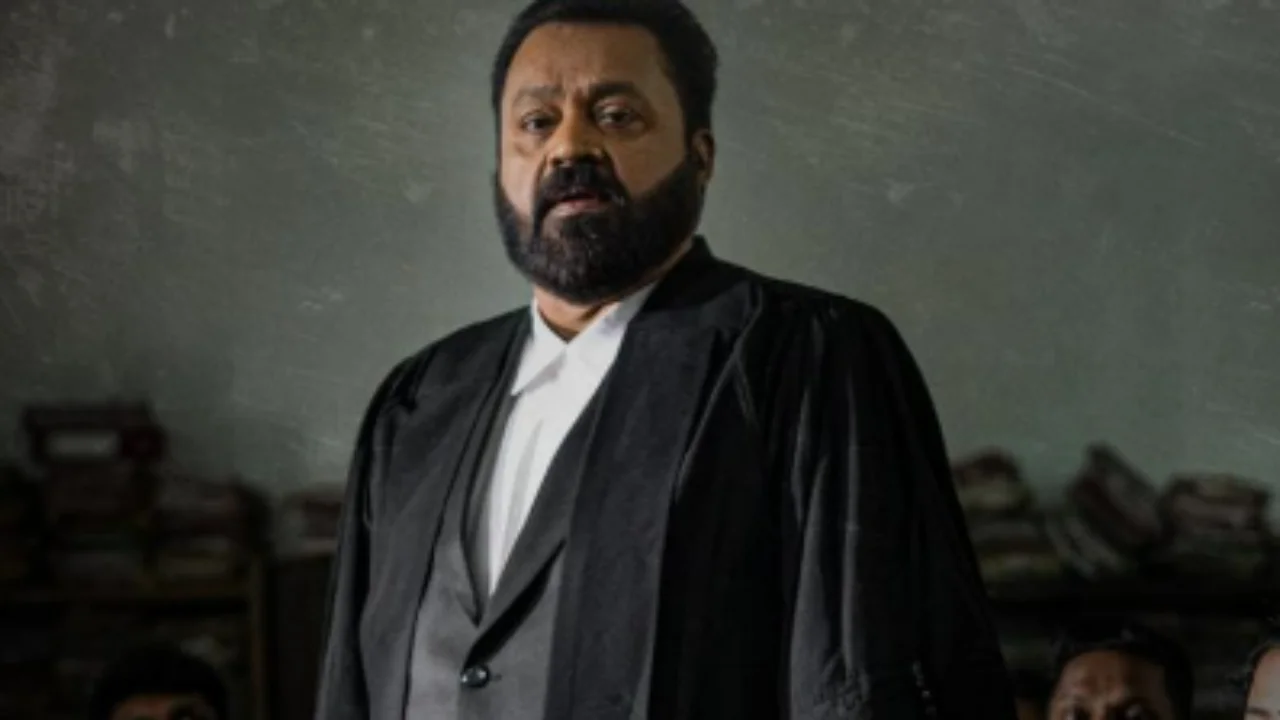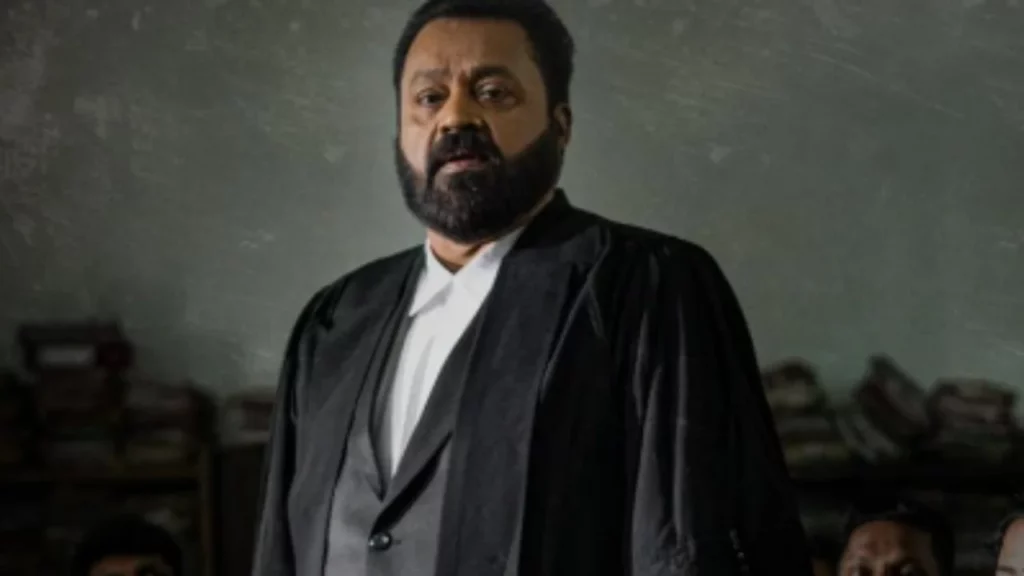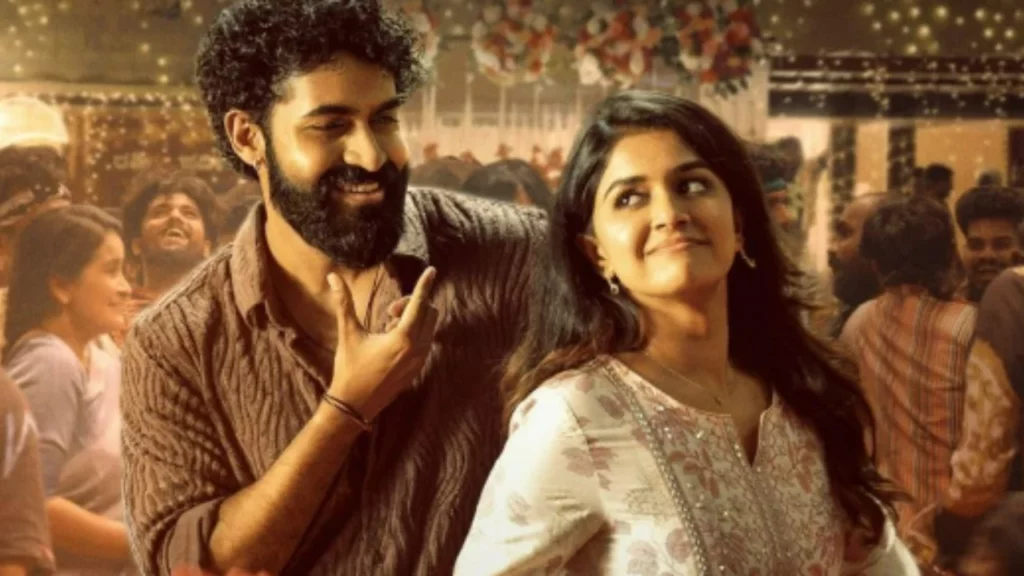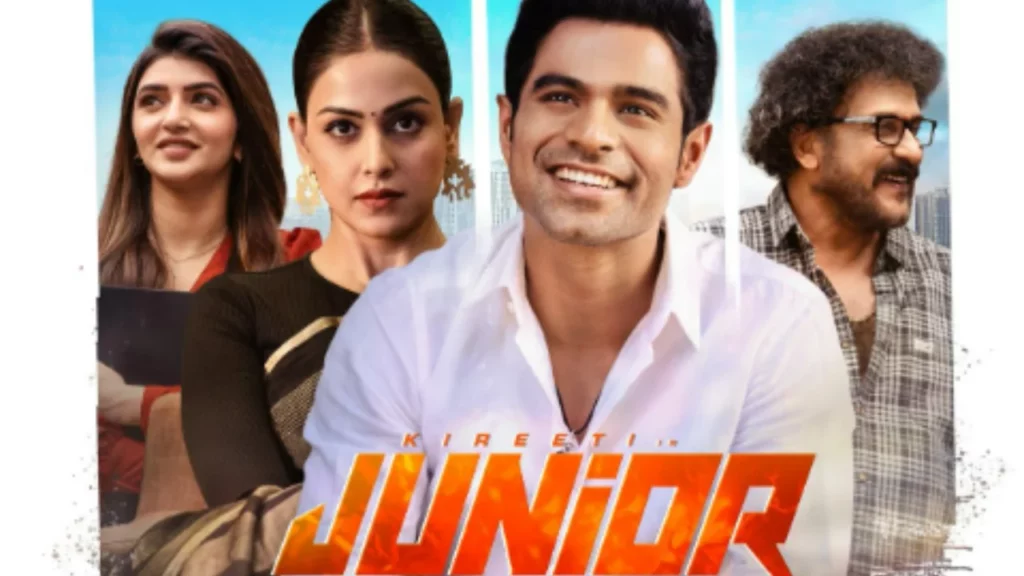
JSK – Janaki V vs State of Kerala (2025) Movie: Why Suresh Gopi’s Courtroom Return Falls Short of Expectations
JSK – Janaki V vs State of Kerala represents a significant return to Malayalam cinema for veteran actor Suresh Gopi. The film marks his first courtroom drama since the acclaimed Chinthamani Kolacase in 2006.
Directed by Pravin Narayanan and featuring Anupama Parameswaran in her comeback to Malayalam films, this legal thriller tackles sexual assault and justice within India’s judicial system. The film also marks the acting debut of Madhav Suresh, son of Suresh Gopi.

Plot: A Familiar Yet Relevant Narrative
The story centers around Janaki Vidhyadharan (Anupama Parameswaran), an IT professional working in Bangalore. She returns to her hometown in Kerala for a weekend temple festival. During her visit, she becomes the victim of a brutal sexual assault.
The case reaches the courtroom, where veteran advocate David Abel Donovan (Suresh Gopi) agrees to represent her. Known for his commitment to evidence-based justice, he faces a challenging legal battle against the state.
The narrative explores the complexities of seeking justice when evidence is scarce. Pravin Narayanan attempts to present a realistic portrayal of how the Indian judicial system operates.
However, the screenplay suffers from predictable beats and lacks narrative innovation. The story follows a conventional template that offers few surprises. While the subject matter remains relevant, the execution fails to bring fresh perspectives.
Cast Performances: Mixed Results
Suresh Gopi delivers what can be described as a competent but unremarkable performance as advocate David Abel Donovan. Known for his firebrand dialogue delivery and commanding courtroom presence, Gopi attempts to recapture the magic of his earlier legal dramas.
His performance includes moments of his trademark intensity, particularly during courtroom sequences. However, many critics noted that his performance feels constrained by a screenplay that doesn’t allow sufficient character development in the second half.
Anupama Parameswaran takes on one of the most challenging roles of her career as Janaki. Her portrayal of a sexual assault survivor requires navigating complex emotional territory. Parameswaran handles these demands with considerable skill, effectively conveying the character’s pain, determination, and vulnerability.
Shruti Ramachandran, playing advocate Niveditha Abel, emerges as one of the film’s stronger performers. She finds an appropriate balance in her dialogue delivery and brings credibility to her role.
Madhav Suresh, making his acting debut, unfortunately becomes one of the film’s major weaknesses. Critics have been particularly harsh about his performance, noting his apparent discomfort with dialogue delivery and lack of natural screen presence.
Technical Aspects: Competent but Unremarkable
Cinematographer Renadive captures the courtroom proceedings with appropriate gravity, though the visual style lacks dynamic quality. The camera work competently covers the legal drama without bringing particular flair or innovation.
Editor Samjith Mohammed maintains a reasonable pace throughout the film’s 146-minute runtime, though some sequences feel unnecessarily extended. The editing occasionally struggles to build and maintain tension during crucial courtroom scenes.
The musical score by Gireesh Narayanan, combined with Ghibran’s background score, provides appropriate dramatic support. Ghibran’s contribution particularly stands out during emotional sequences, adding haunting elements that heighten the stakes.
Direction: Ambitious but Flawed
Pravin Narayanan, making his directorial debut, tackles challenging subject matter with good intentions but inconsistent execution. His approach to the courtroom drama genre shows familiarity with legal procedures.
The screenplay attempts to balance multiple elements – personal trauma, procedural aspects of legal investigation, and broader commentary on India’s judicial system. While these themes are important, the writing doesn’t integrate them seamlessly.
The dialogue-heavy approach becomes overwhelming when not balanced with more subtle moments of character interaction.
Critical Reception
The film has received mixed to negative reviews from both critics and audiences since its release. Early social media reactions have been largely disappointed. IMDb users have rated the film 6.5 out of 10.
Professional critics have been particularly critical of the film’s approach. Many reviews noted that while the subject matter is important, the execution fails to create emotional impact or narrative freshness.
Social media reactions have been harsh, with users on X (formerly Twitter) describing the film as below average and criticizing its templated approach to a sensitive subject.
However, the film has found some defenders who appreciate its message about women’s safety and Suresh Gopi’s return to the courtroom drama genre.
What I Liked
I appreciated the film’s commitment to highlighting important issues around sexual assault and judicial procedures. Anupama Parameswaran’s committed performance stood out as genuine and emotionally resonant. Her portrayal of a survivor’s journey felt authentic and powerful.
Suresh Gopi’s courtroom presence provided the film with its strongest moments. When he delivers those trademark powerful monologues, you remember why he was such a force in Malayalam cinema. The scenes where he criticizes government policies while holding the constitution were particularly effective.
The subject matter remains relevant and necessary for contemporary Malayalam cinema to address. I found myself engaged during the emotional sequences, especially those focusing on the survivor’s perspective.
What Could Be Better
I found the predictable screenplay to be the film’s biggest weakness. The story lacks the innovation needed to make familiar themes feel fresh and engaging. Every courtroom twist felt telegraphed from miles away.
Madhav Suresh’s weak performance significantly undermined key scenes. I couldn’t help but cringe during his dialogue delivery – it felt like watching someone uncomfortable in their own skin rather than a natural performer.
The film’s attempt to create mass appeal through dialogue-heavy scenes often came at the expense of genuine emotional depth. I wanted more subtle character moments and less theatrical rhetoric.
The controversy surrounding the film’s title unfortunately overshadowed its content. Instead of using this attention to deliver a powerful statement, the film settled for routine courtroom drama that fails to create lasting impact.
Popular Website Reviews
LensmenReviews described the film as a movie that shields itself from criticism by acting like the voice of the people and criticized its reliance on outdated courtroom rhetoric. They noted the film’s inconsistent graph and questioned its sincerity in handling sensitive subject matter.
OnManorama gave a more balanced review, acknowledging the film’s good intentions while pointing out execution flaws. They praised Anupama Parameswaran’s performance but criticized the overall narrative depth.
IMDb users have been mixed in their response, with the film currently holding a 6.5/10 rating. Many user reviews echo professional critics’ concerns about the templated approach and weak supporting performances.
FilmiBeat highlighted the technical competence but noted the film’s failure to distinguish itself from superior examples of the courtroom drama genre.
Public Reviews
Social media reactions have been predominantly negative. Twitter users have described the film as below average and criticized its lack of impact. Many compared it unfavorably to other courtroom dramas, with some calling it a templated thriller with no engaging elements.
However, some viewers appreciated the film’s message and Suresh Gopi’s return to legal drama. A few praised it as a well-made courtroom drama with proper execution, though these positive reactions appear to be in the minority.
The film has sparked discussions about women’s safety and judicial reform, which shows that despite its flaws, it has managed to engage audiences on important social issues.
2.5/5








